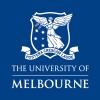Student researcher
Large bodied people or those people with morbid obesity are ‘conspicuously invisible’ in research relating to disasters.
The Sendai Framework sets out the urgency to anticipate, plan for, and reduce disaster risk globally. Work is required to reduce exposure and vulnerabilities. Disaster risk reduction (DRR) approaches need to be broader and more people-centred.
A literature scan found no empirical reports of data specific to morbid obesity and disasters. Morbid obesity (body mass index > 40) is associated with serious co-morbidities and persons with morbid obesity have been identified as a vulnerable population in disasters. A handful of largely anecdotal secondary care reports describe disaster situations in which people categorised as morbidly obese were negatively impacted because of their size and/or weight. These stories raise questions around equity and ethical decision-making in disaster situations.
No research relating to morbid obesity and DRR or emergency management has been conducted to date. This presents a potential major concern in NZ and Australia as we sit towards the top of the tables for obesity in developed Countries and our indigenous populations are disproportionately represented in morbid obesity statistics.
This PhD adopts a pragmatic approach and will comprise mixed methodology to determine DRR strategies for persons with morbid obesity. Quantitative and qualitative survey of key stakeholders and qualitative narratives with large bodied persons and their family or whanau. Pacific Talanoan and kaupapa Maori approaches will be employed.
| Year | Type | Citation |
|---|---|---|
| 2019 | Journal Article | Beyond Binary: (Re)Defining “Gender” for 21st Century Disaster Risk Reduction Research, Policy, and Practice. International Journal of Environmental Research and Public Health 16, (2019). |
| 2018 | Journal Article | My grab bag is two suitcases: an autoethnographical view of a super-plus size self-evacuation from Hurricane Irma. Australian Journal of Emergency Management - Monograph 3, 50-54 (2018). |





